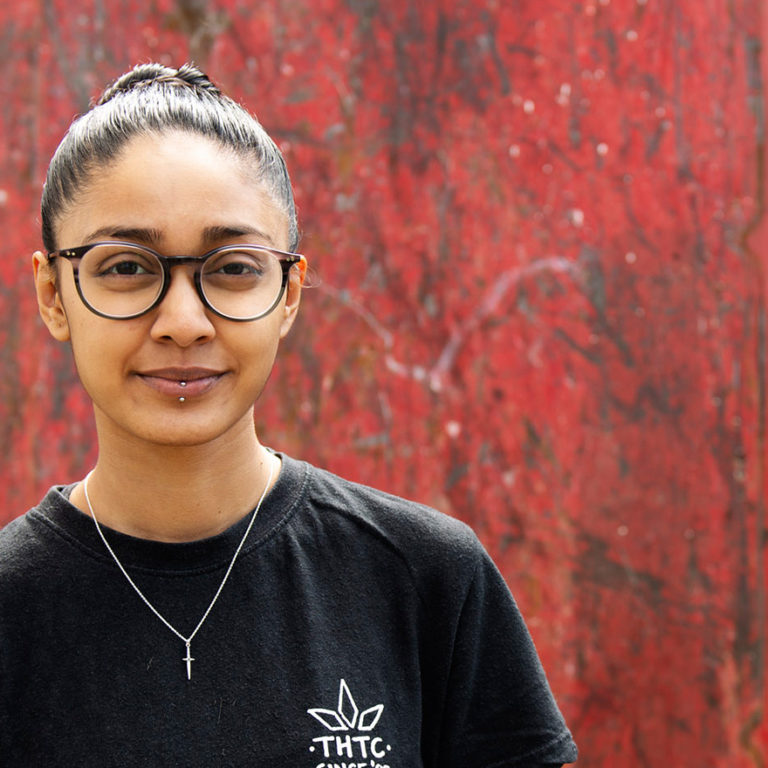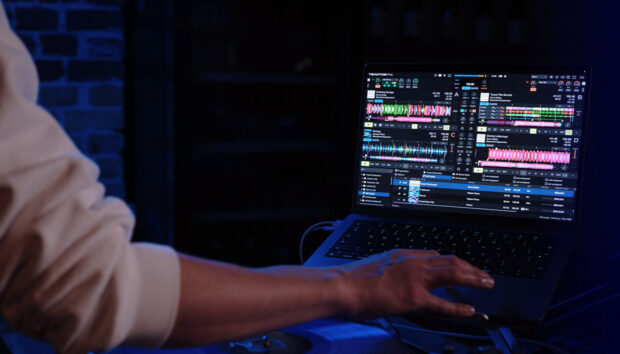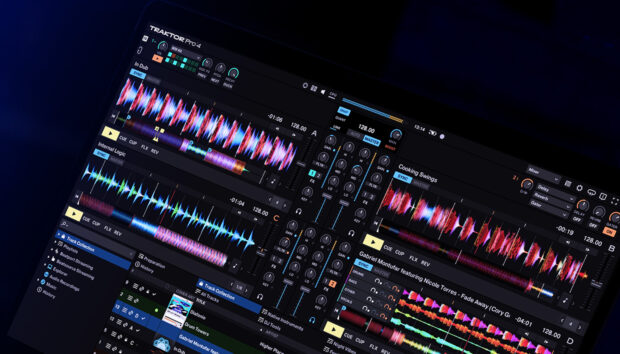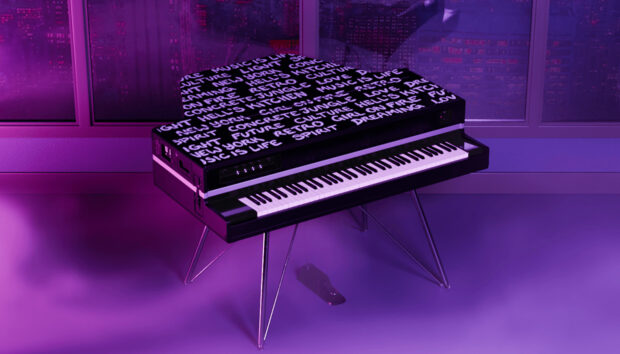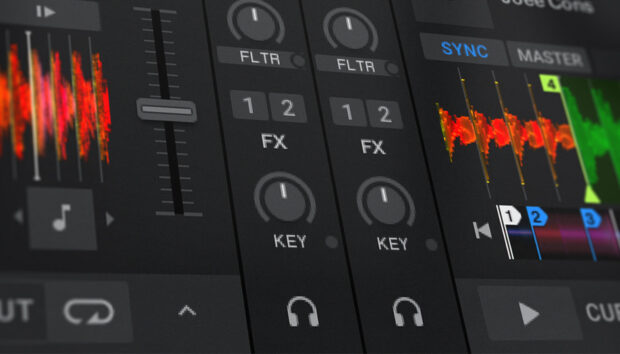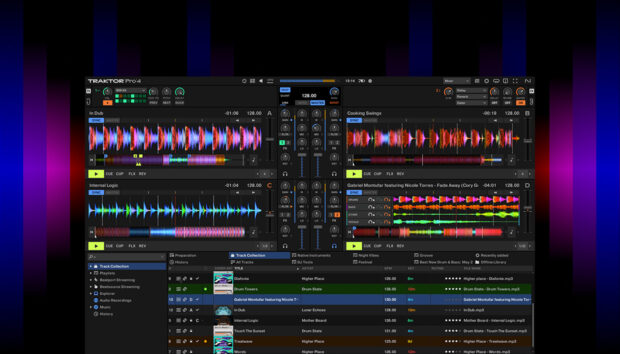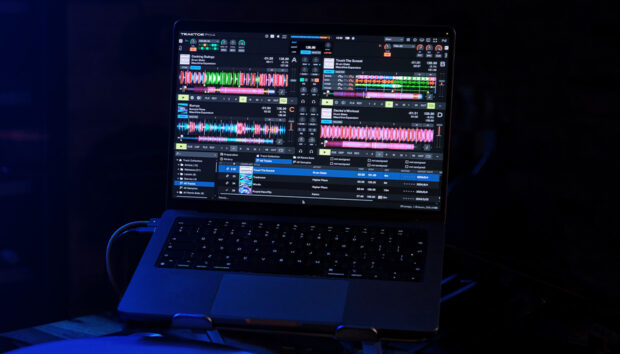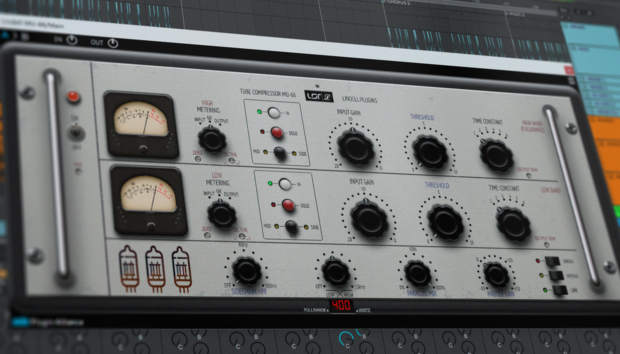Drawing influences from jazz, soul, funk, hip hop, UK bass music, and neo-soul, London-based producer, sound artist, and DJ, Gnarly has a rich repertoire of genre-bending beats to offer. Learning various instruments growing up, following up with a degree in Sound Arts and Design, mastering the art of music production and live finger-drumming, there isn’t much left she isn’t already a pro in.
Attracting a lot of interest and following through her Instagram page, where she regularly uploads finger-drumming workouts and new song ideas she created on MASCHINE, we took the chance to pay her a visit in her London studio and discuss production process, influences, and favorite MASCHINE techniques.
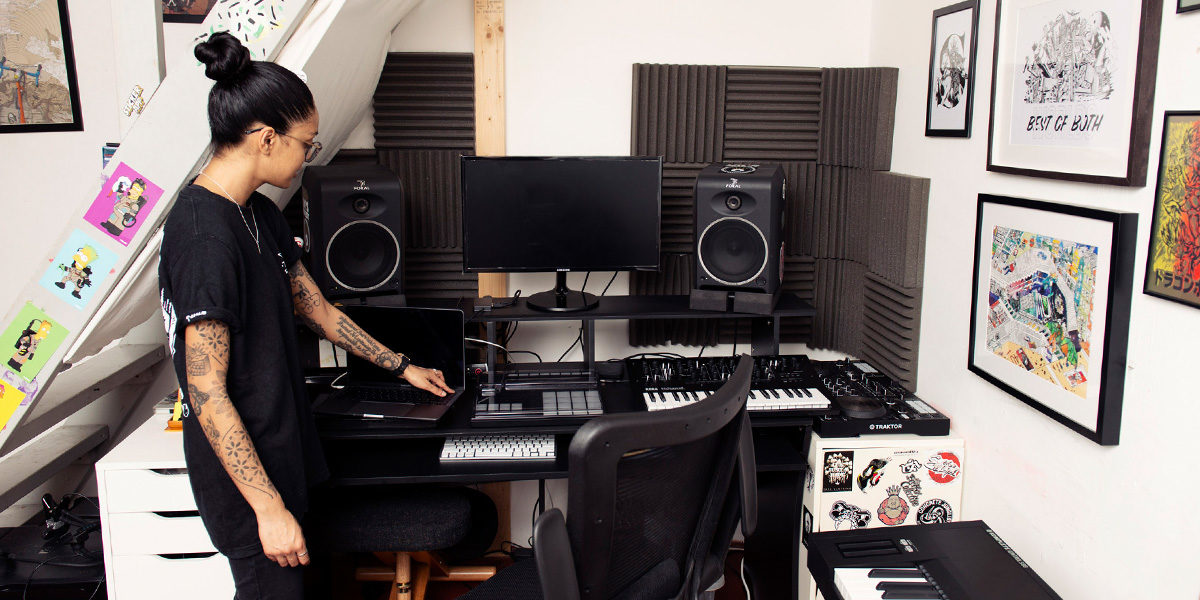
As a multi-instrumentalist, when did you decide that you also wanted to delve into music production?
I started playing the piano when I was six after begging my mum for lessons. I think from that point on I always knew making music would be a big part of my life. As I grew up I spent a lot of time composing, songwriting, and rapping in youth clubs in my early teens. I wanted to start making my own beats for my vocals. When I started producing, I realized I was better at making beats and enjoyed it more. There’s something magical about the way music can express things that sometimes words can’t.
What is your musical background? Is there a genre or band that had a particular influence on your music?
I had piano and violin lessons when I was younger and taught myself how to play the guitar as a teenager. I really got into producing when I was doing my Music GCSE and Music Tech A-Levels, then went on to eventually get a degree in Sound Arts and Design. Studying music was a good foundation for me but it took a number of years and experimentation before I could produce the kind of music I wanted to make.
I grew up listening to 00s and 90s hip hop and RnB mostly, with a bit of Nirvana too. I think Timbaland would be the producer I’m most inspired by from that era. I used to hear his beats and think his kicks could hit so hard. All his tracks are so vibey and have his signature sound. I’m a big fan of UK bass music, stuff like grime, drum and bass, early dubstep, and jungle. I’d say my tracks tend to have a bit of that UK bass vibe. Currently, my favourite producer is Lido, he’s a multi-instrumentalist too and one hell of a performer. His tracks have a kind of RnB vibe with a modern flair, that’s the same kind of vibe I’m aiming for, soulful chords with hard-hitting beats. All these different genres have had an influence on the type of music I make, which is why it can sometimes be hard to place my music in a specific genre.
Is there an instrument you always use or inspires you the most?
Probably Maschine. It’s not a traditional instrument but learning to perform live with it requires the same level of skill it takes to master any traditional instrument. It’s great for throwing ideas together quickly and I love the versatility of being able to put infinite combinations of sounds together.
Can you walk us through your creative process?
First I like to sit at my desk and open up Spotify; I have a go-to playlist of songs by other artists that I actively listen to, to get inspired.
Next really depends on if I’m in a sampling, live performance, or intricate producing mood. If I’m sampling, I spend some time searching through samples and deciding on the key and tempo of the track. Then I arrange the sounds to the pads and spend a few hours playing around with the track.
When I’m producing, I usually compose the chords and melody on piano before adding other instruments. I’ll build and arrange most of the track before adding the drums.
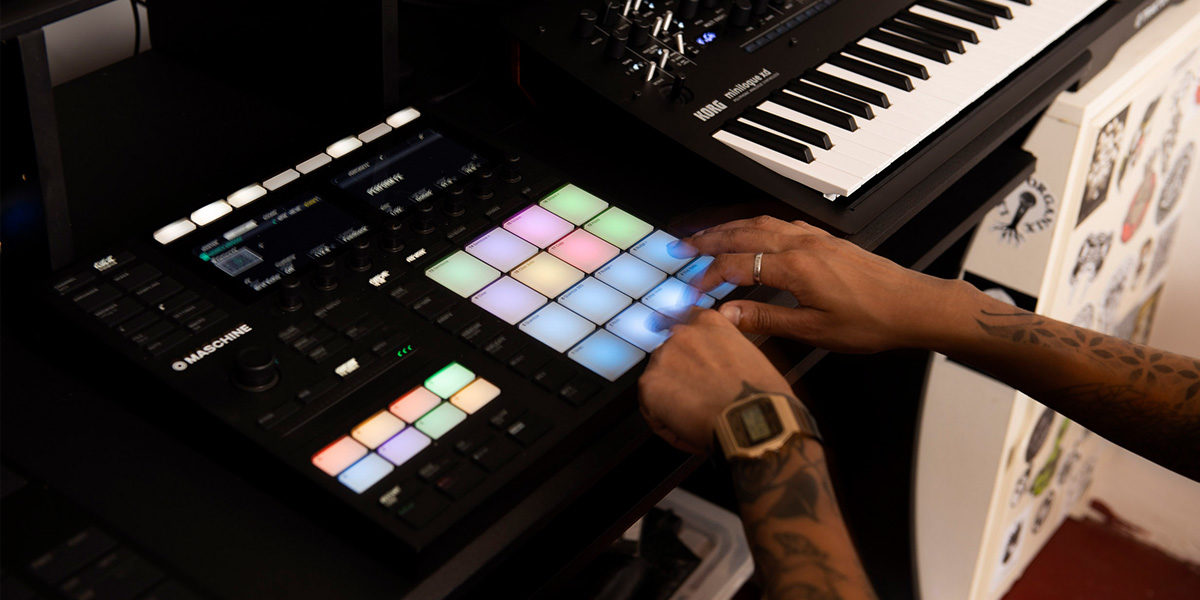
Drums or harmonies first?
Depends on what comes to mind at the time. Sometimes I’ll get a beat in my head and lay down the drums first and work out the other parts with the beat and tempo in mind. I think most of the time I’ll start out with chords, then add a melody and some bass. I’ll arrange it so it’s an eight or 16 bar-loop and then jam some different drum patterns until I find one that fits.
What made you opt for MASCHINE as a weapon of choice?
I was already invested into Native Instruments software with Komplete so it seemed like a good idea to go with Maschine when I started delving into finger drumming to keep my software streamlined. The Expansion packs have some great sounds that I couldn’t seem to find anywhere else. I also prefer the size, feel, and placement of the pads and controls in comparison to other pad-based controllers out there.
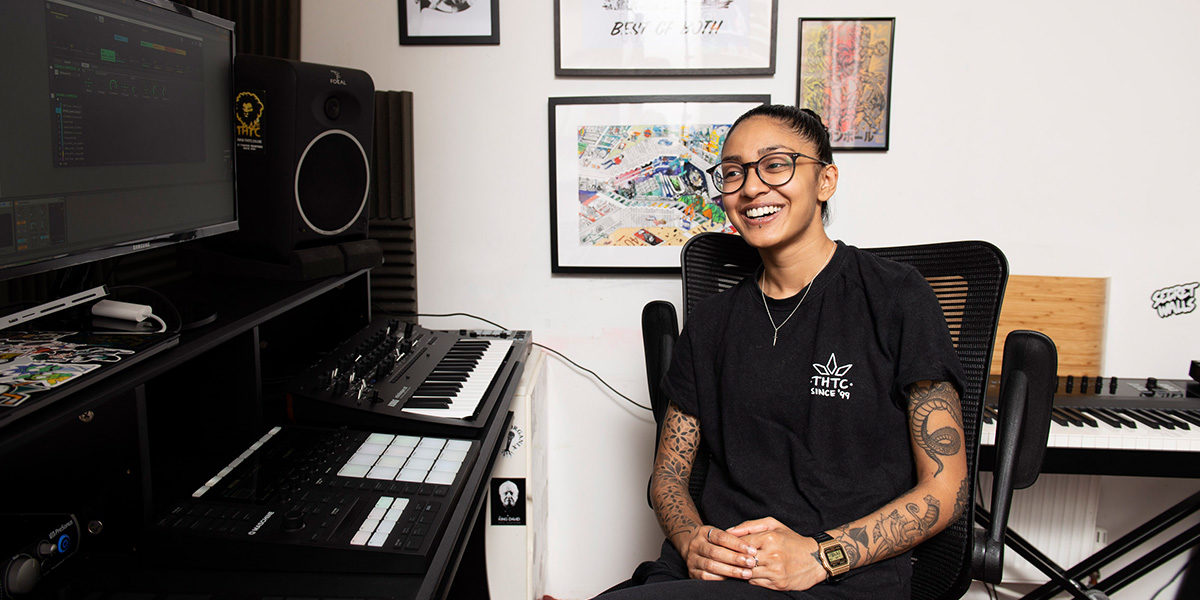
You regularly update your Instagram account with impressive finger drumming live performances of your beats, what would be your ultimate tip for someone who is eager to learn finger drumming as well?
Find a technique that works for you and practice a lot and consistently. Regular practice makes a massive difference, maybe start with a 30-day beat challenge (make a new beat and post it every day for 30 days) to get in the habit. It’s also a way to see how quickly your skills improve. Doing the beat challenge has really helped me with learning new patterns, beats, and different genres quicker as it gives you the pressure of having to make a new and different beat every day.
You are also a DJ and sound engineer, how much of an influence do those fields have on your productions.
DJing and sound engineering play a huge role in how I produce and mix my tracks. DJing gives you the opportunity to audition tracks to crowds so you can gauge what kind of vibe really gets people moving and what stuff falls flat. It also means I listen to a lot of music to put sets together which can be inspirational in itself.
Through sound engineering, I have good knowledge of microphone, recording, and mixing techniques. For the last five years, I’ve mixed and mastered the post-production audio for the UK Beatbox Championships. I love the challenge of trying to get the audio sounding as punchy and bassy as possible without muddiness and trying to replicate the huge sound of a live system to sound as good on laptop speakers. I use a lot of the same techniques when mixing and mastering my own tracks.
A lot of producers struggle with deciding when a beat is finished or not, how do you know when a track is ready for the world to hear?
This is something I struggle with as well. I don’t think you ever really know, you just have to trust your gut and put it out when you feel like it’s at a point where it sounds good and there’s nothing else you can add to it.
Photo credits: Kristina Salgvik








